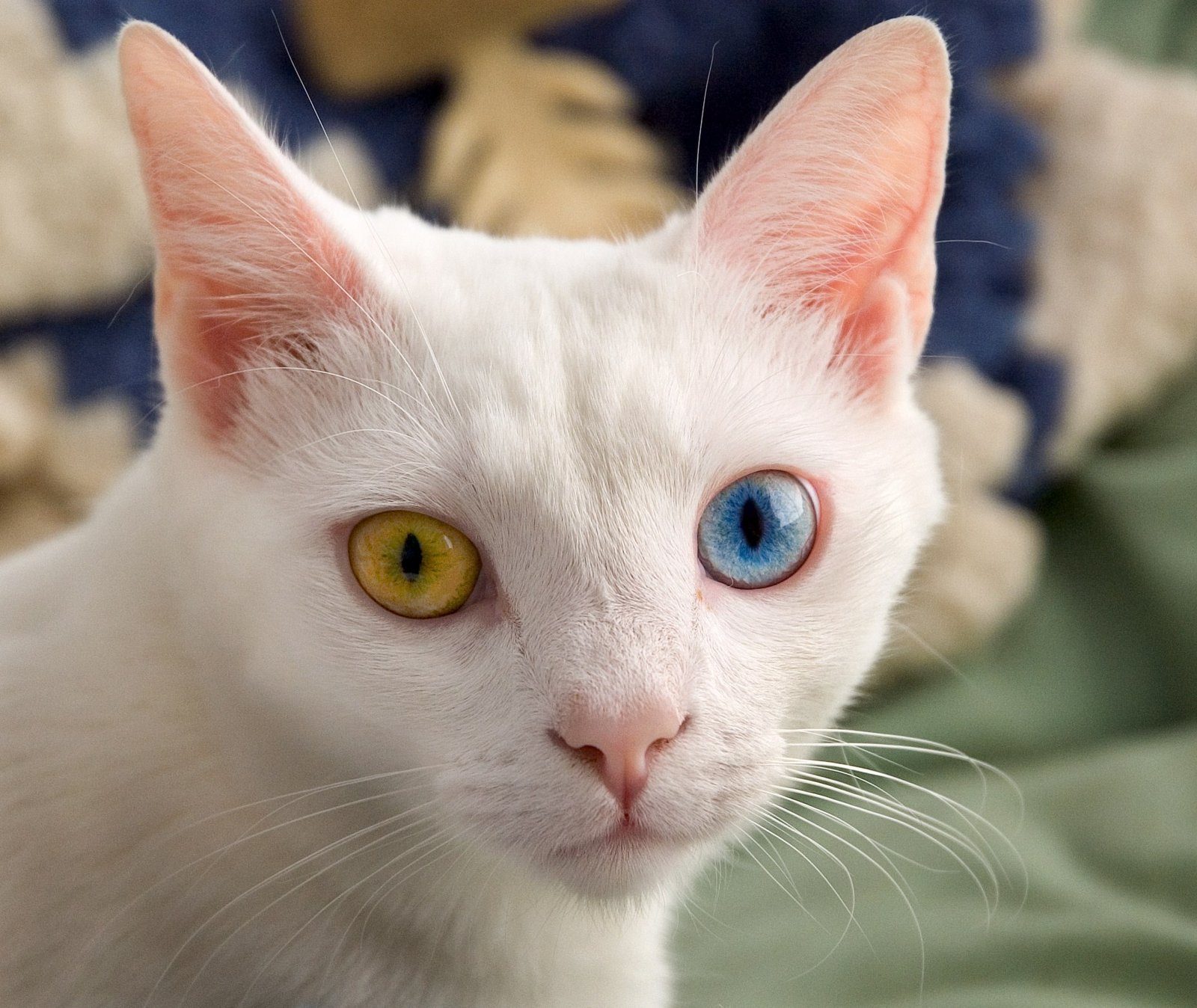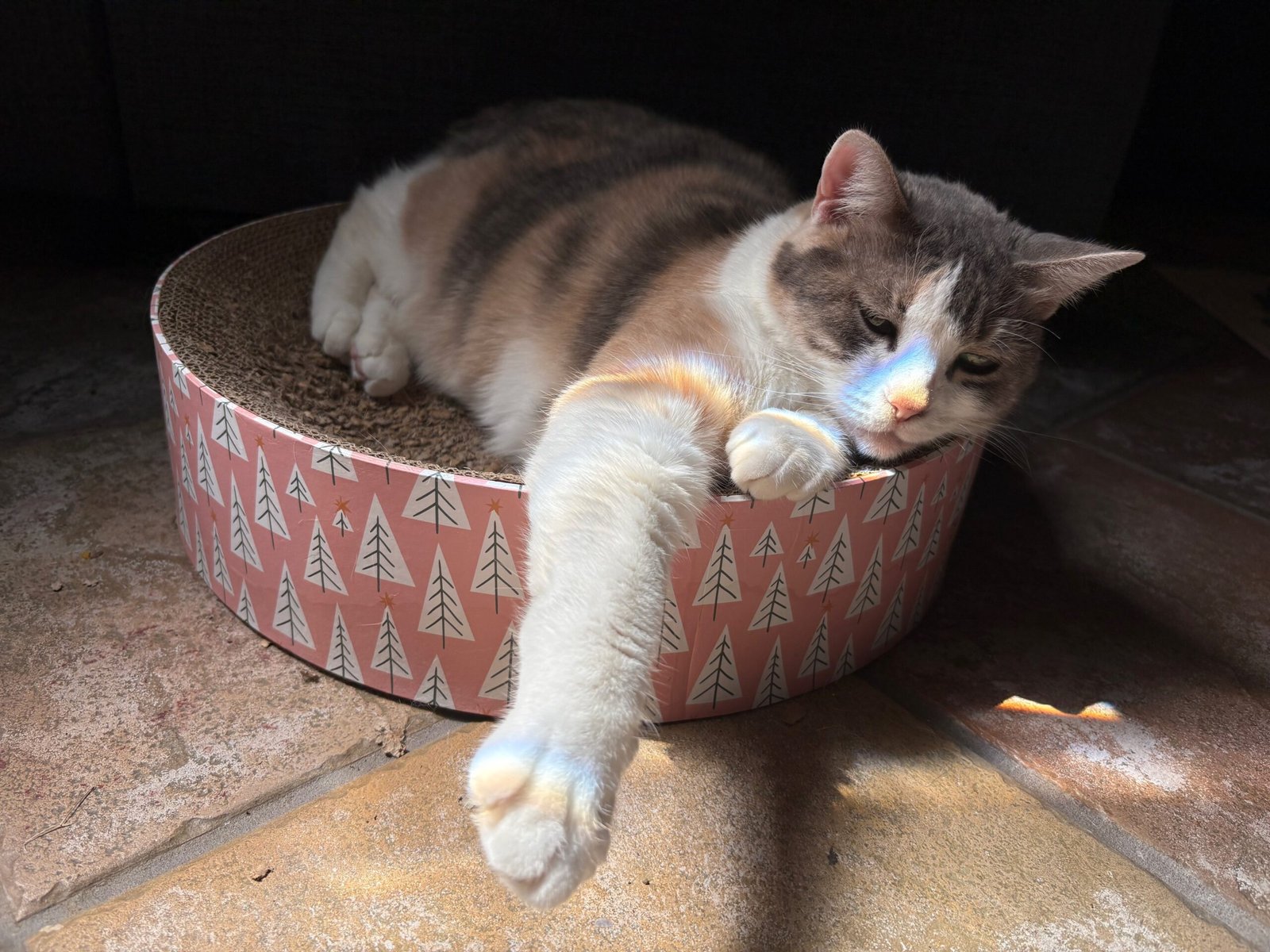Has your cat ever tapped your arm with a soft paw, stared at you for a split second, and then strolled off as if nothing happened? It’s equal parts adorable and baffling. Many cat owners find themselves wondering what’s going on in their kitty’s mysterious mind during these fleeting moments. Is it affection, a secret code, or just another one of those quirky feline habits? Let’s dive into the fascinating reasons behind this classic cat behavior and uncover what your furry friend might really be trying to say.
The Language of the Paw: Cat Communication Unveiled

Cats don’t use words, but their paws are like little messengers. When your cat touches you briefly, it could be their way of saying hello or grabbing your attention. Unlike dogs, cats are subtle and often use touch to communicate their needs or feelings. Sometimes, it’s just a gentle reminder that they’re around. Think of it as your cat’s version of tapping you on the shoulder. This simple gesture can mean a lot more than it seems at first glance. It’s the start of a silent conversation—a little nudge to let you know you’re noticed.
Seeking Your Attention Without Demanding It

Unlike dogs that may bark or jump up, cats tend to be low-key when they want attention. A quick touch followed by walking away is a cat’s way of saying, “I’m here, but I’m not desperate.” Sometimes they just want you to acknowledge them, even if it’s just a glance or a few kind words. It’s almost as if they’re testing the waters, seeing if you’ll respond without making a big fuss. This subtle approach reflects their independent nature. It’s a gentle request, not a demand.
Testing Boundaries: Are You Available?

Cats are masters at reading the room. When they touch you and then walk away, they might be testing if you’re open to interaction or busy with something else. It’s a bit like a friend poking their head in your door to see if you’re free to chat. If you respond, your cat may come back for more affection. If not, they’ll move on without feeling rejected. This behavior shows just how sensitive cats are to their environment and your mood.
Expressing Affection—On Their Terms

Cats love in mysterious ways. A brief touch can be their version of a kiss or hug, even if it doesn’t last long. Unlike humans, cats don’t always crave prolonged physical contact. They might show their affection in little doses, just enough to let you know you’re special. This fleeting connection can be heartwarming if you notice it. It’s their way of saying, “I like you, but I need my space.” Cherishing these tiny moments can help deepen your bond.
Marking You as Part of Their World

Cats have scent glands in their paws, and when they touch you, they’re leaving behind a faint scent. This is their way of marking you as part of their territory. It’s not possessive in a negative way—it’s comforting to them. By marking you, they’re saying you belong in their circle of trust. This invisible signature gives them a sense of security and ownership. It’s almost like a secret handshake between you and your cat.
Curiosity: Is Something New Going On?

Cats are naturally curious creatures. If you’re doing something unusual—maybe tapping away on your laptop or opening a crinkly package—they might reach out to investigate. A quick touch and walk away is their way of checking things out without fully committing. It’s like dipping a toe in the water before jumping in. Their brief interaction reflects both curiosity and caution. They want to know what’s happening, but they also don’t want to get too involved unless necessary.
Playful Invitations and Teasing

Sometimes, that light touch is an invitation to play. Cats love games that involve chasing and pouncing. By touching you and then walking away, your cat might be trying to get you to follow or engage with them. It’s a playful tease, much like a child asking you to chase them. If you respond by wiggling your fingers or tossing a toy, you might find your cat eagerly returning for more fun. This back-and-forth is a sign of trust and joy.
Asserting Independence with a Soft Goodbye

Cats are famously independent, and sometimes a quick touch is their way of saying, “I’m off to do my own thing now.” This little gesture can be both a greeting and a farewell. It shows that your cat values your presence but also needs their own space. They might touch you to acknowledge you, then confidently stroll away to explore or nap. This balance between connection and independence defines feline personality.
Checking for Your Reaction: A Subtle Test

Your cat might be looking for a reaction—will you pet them, speak to them, or ignore the gesture? This brief touch is like a test. If you respond positively, your cat may feel encouraged to interact more. But if you’re busy or distracted, they’ll just move along, no hard feelings. This behavior highlights their adaptability and emotional intelligence. Cats are experts at reading people without making a scene.
Comfort Seeking: A Quick Reassurance

Sometimes, cats touch you just for a moment of comfort. If they’re feeling a bit anxious or uncertain, a gentle touch and your familiar scent can be soothing. They don’t always need a long cuddle—just a brief connection to feel grounded. This is especially common in multi-pet households or noisy environments. It’s as if your cat is saying, “I just needed to check in with you.” These moments can be quietly reassuring for both of you.
Social Rituals: Feline Etiquette

In the cat world, social interactions are often brief and polite. Cats greet each other with quick touches, nose boops, or tail flicks. When your cat touches you and walks away, they might be including you in their social rituals. This is their way of treating you like one of their own. These small rituals are important in maintaining harmony and trust within your little family pack.
Health Checks: Subtle Signs of Discomfort

On rare occasions, a brief touch followed by withdrawal could signal discomfort or illness. Cats are experts at hiding pain, but a change in their behavior is worth noting. If your usually cuddly cat starts only touching you briefly and seems withdrawn, it might be time for a check-up. Sometimes, they use touch to communicate changes they can’t express in other ways. Always trust your instincts if something seems off.
Instincts from the Wild: Survival Behaviors

Cats are descended from wild hunters, and some of their behaviors are rooted in survival instincts. In the wild, quick touches and brief interactions keep them alert and safe. Lingering too long could make them vulnerable. When your cat taps you and moves away, it’s echoing these ancient habits. This instinct helps explain why your cat might prefer short, fleeting connections over long cuddles.
Environmental Factors and Distractions

Sometimes, the reason for your cat’s brief touch is as simple as a distraction. Maybe a noise outside or another pet has caught their attention. Cats are easily diverted, and their priorities can shift in a heartbeat. This doesn’t mean they’re uninterested in you—it’s just their way of responding to the world around them. Their fleeting attention span is part of what makes them so unpredictable and entertaining.
Reading Your Energy and Mood

Cats are surprisingly sensitive to your emotions. They can pick up on your mood through your tone of voice, body language, and even your scent. If you’re stressed or upset, your cat might offer a quick touch as comfort but not linger if they sense you need space. On happier days, they may interact more. This intuitive behavior shows just how attuned cats are to their human companions.
When to Be Concerned: Understanding Unusual Changes

While brief touches are usually normal, sudden changes in your cat’s behavior deserve attention. If your cat suddenly becomes distant, aggressive, or stops touching you altogether, it could indicate stress or health issues. Keep an eye out for other signs like loss of appetite, hiding, or vocalizing more than usual. Early detection can make a big difference in keeping your cat happy and healthy. Never hesitate to seek advice from a vet if you’re worried.
Cats are full of surprises, aren’t they? Every little touch and walk-away tells a story, one that only you and your cat truly share.

Linnea is a born and bred Swede but spends as much time as possible in Cape Town, South Africa. This is mainly due to Cape Town’s extraordinary scenery, wildlife, and atmosphere (in other words, because Cape Town is heaven on earth.) That being said, Sweden’s majestic forests forever hold a special place in her heart. Linnea spends as much time as she can close to the ocean collecting sea shells or in the park admiring puppies.





